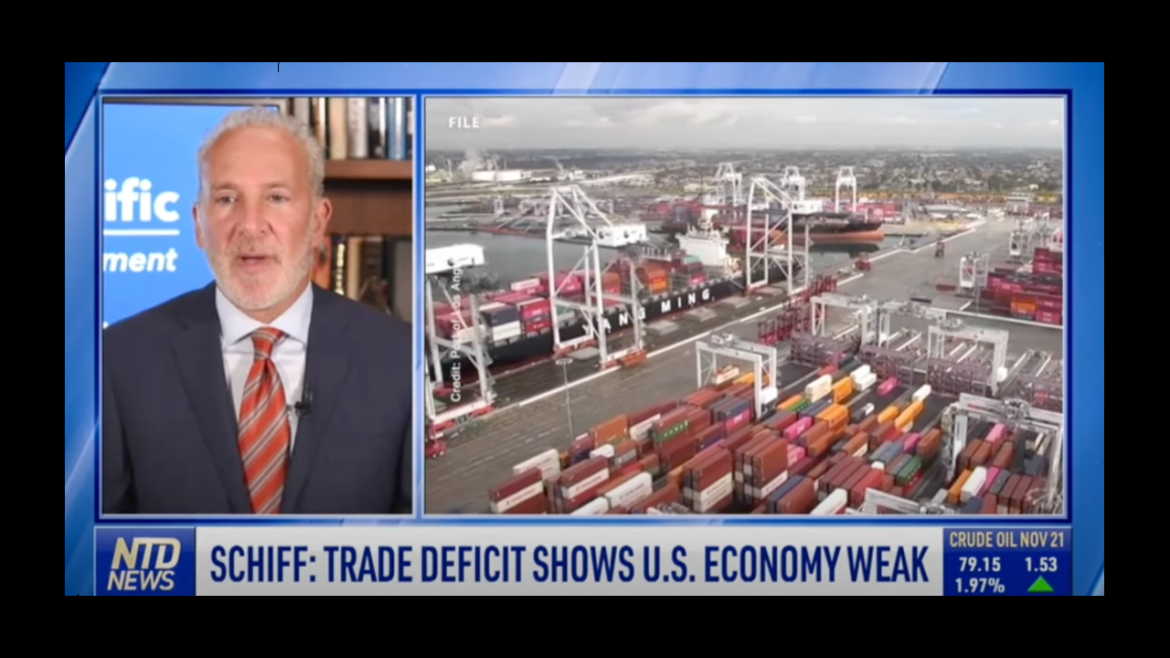Gold has all the potential to go unprecedentedly high. But silver will be gold on
Site:
Precious metals news
20% of home sales are above the appraised value. Deals are falling though.
“The AIER Leading Indicators index posted a sixth consecutive drop in September but remains slightly above the neutral 50 threshold, suggesting continued economic expansion. However, the string of declines since the March high also suggest that sources of growth may narrow, and the pace of...
It’s taken just a few short months for stagflation to go from hobgoblin of cranks to a full-blown Wall Street obsession.
 A Record Number Of Americans Just Quit Their Jobs Despite Job Openings Plunging The Most Since 4/20
A Record Number Of Americans Just Quit Their Jobs Despite Job Openings Plunging The Most Since 4/20Oct 12, 2021 - 09:22:07 PDT
Still, with emergency benefits expiring one month after this latest JOLTS report took place, we wouldn't read too much into it since virtually everything is set to change in the coming months as a new and unknown dynamic emerges as millions of Americans start returning to the labor force.
As most can recall, in 2008, banks — the ones deemed “too big to fail” — were supported by one of the largest government bailouts in world history. Expect to see another banking crisis soon, but this time, it’ll be different.
One might anticipate that the bottom 50%'s meager share of the nation's exploding wealth would have increased as smartly as the wealth of the billionaires, but alas, no.
"Only someone who is convinced that government will undertake only economically worthwhile projects regardless of the means of financing – or someone who doesn’t understand economics – can look favorably upon deficit financing by government."
Russian President Vladimir Putin on Tuesday ordered the government to come up with ways to support households as their purchasing power is affected by high inflation.
Members of the House are scrambling back to Washington on Tuesday to approve a short-term lift of the nation's debt limit and ensure the federal government can continue fully paying its bills into December.
 IMF Slashes US Growth Forecast and Warns of Rising Risks to the Global Economy: CNN
IMF Slashes US Growth Forecast and Warns of Rising Risks to the Global Economy: CNNOct 12, 2021 - 06:47:19 PDT
The IMF on Tuesday slashed its 2021 growth forecast for the United States by one full percentage point to 6%, the biggest reduction suffered by any G7 economy in its latest World Economic Outlook.
 IMF Issues Global Stagflation Alert: Cuts Global GDP As It Warns Of Rising Inflation: ZH
IMF Issues Global Stagflation Alert: Cuts Global GDP As It Warns Of Rising Inflation: ZHOct 12, 2021 - 06:44:07 PDT
In its latest World Economic Outlook report published on Tuesday morning, the International Monetary Fund voiced its starkest caution about stagflation yet, warning that the global economic recovery has lost momentum and become increasingly divided, even as it warned about rising inflation risks.
Consumer borrowing has slowed somewhat from the record level we saw in June, but Americans continue to pile on the debt.Consumer debt grew by $14.4 billion in August to $4.35 trillion, according to the latest data from the Federal Reserve. That represents a 4% increase.This follows on the heels of a 4.8% increase in July after a record 10.6% increase in June.
Gold climbed as bond yields retreated after the U.S. holiday, with investors assessing inflationary pressures from rising energy prices and the outlook for monetary policy.
The Fed will be faced with a bad choice: protect financial asset values and not the dollar, or protect the dollar irrespective of the consequences for financial asset values.
Nouriel Roubini -- renowned for foreseeing the mortgage collapse that helped produce the 2008 financial crisis -- said the Federal Reserve may find it tough to tighten policy if growth slows and markets sell off like they did in the fourth quarter of 2018.
The U.S. Federal Reserve may not be so eager to rescue the stock market this time around, according to Bank of America Corp. strategists.
The country’s 10-year breakeven rate -- a bond-market derived gauge of inflation expectations over the next decade -- climbed to its highest since 2018 this week. A slump in the yen and surge in commodity prices have fueled the gain and analysts don’t expect it to reverse anytime soon.
One of the bond market’s most closely followed monitors of long-term inflation expectations is suggesting that the Federal Reserve may be at risk of losing control over rising pricing pressure.
Signs that soaring energy prices are putting a dampener on economic growth kept a lid on global stock market gains on Tuesday, while inflation and policy-tightening fears sent short-dated U.S. Treasury yields to 18-month highs. The impact of supply crunches in power and manufacturing components is showing up in data ...
A surge of imported services drove the trade deficit to a new record in August. Peter Schiff appeared on NTD News to talk about the trade imbalance. He said it is not a sign of a strong economy and not the kind of records we want to be breaking.
























